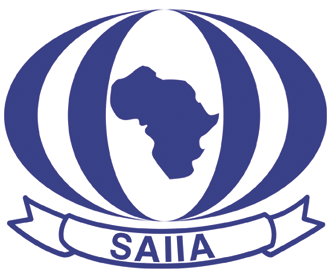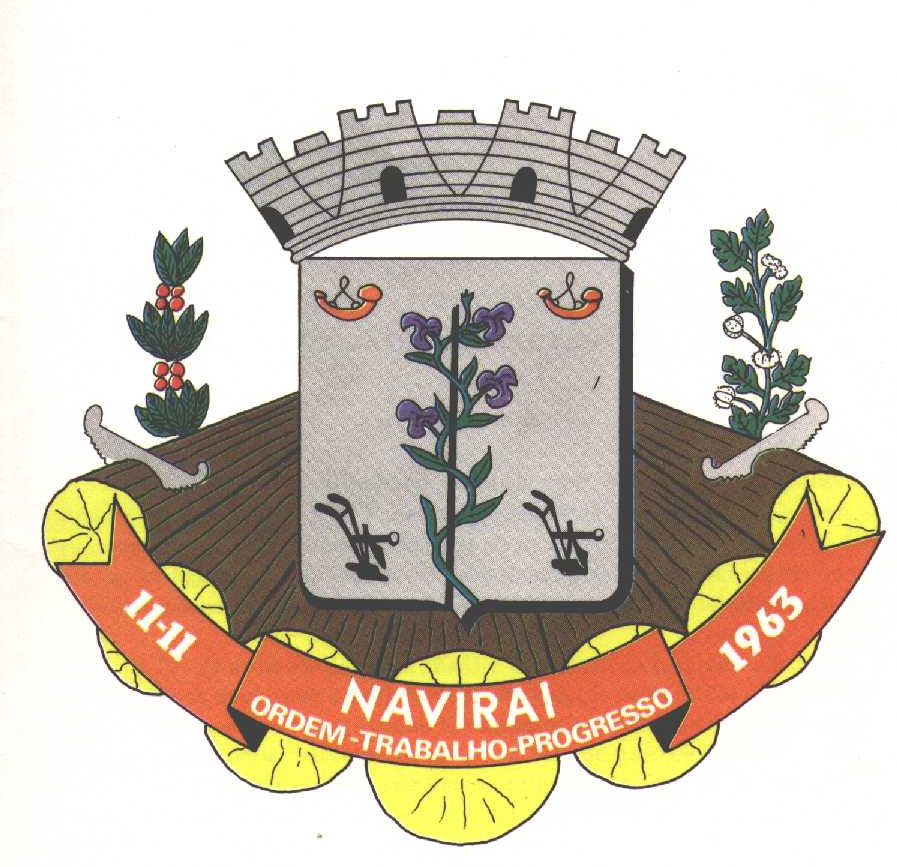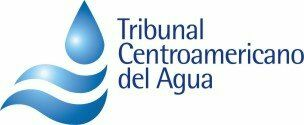AN AFRICAN UNION GOVERNMENT PERSPECTIVES BY THE SOUTH AFRICAN
AFRICAN UNION UNION AFRICAINE UNIÃO AFRICANA ADDIS ABABAAFRICAN WOMEN’S DEVELOPMENT FUND FONDS DE DEVELOPPEMENT POUR
SOUTH AFRICAN NATIONAL PARKS ADDRESS PO BOX 787
1 A 07 AFRICAN AMERICAN AFFAIRS (UPDATED AUGUST 2021)
110423 INDIA PROVIDES SOFT LOANS TO WEST AFRICAN BUSINESSES
12 SPIRITUALITY IN THE AFRICAN INDEPENDENT CHURCHES DEJI AYEGBOYIN
An African Union government: Perspectives on five issues

An African Union government: Perspectives
By the South African Institute of International Affairs
As an institution of member states, the AU is limited by the weakness of many countries, whose economies are fragile, whose societies have been or continue to be wracked by conflict; and whose populations are among the poorest in the world. In addition, although elections have swept through most African states in the last decade and a half, there are huge disparities between countries regarding their underlying values and the degree of accountability, capacity and participation of populations. Thus, the lofty principles encompassed in the Constitutive Act of the AU and in many other continental charters and protocols are not respected or applied uniformly across the board.
The Pan African Parliament in its submission to the AU Summit in Accra in July 2007 makes the following very perceptive and realistic statement:
Firstly, while all African countries owe political allegiance to Africa by virtue of historical, cultural and geographical affinities, their political, economic and strategic interests could bring them into conflict with the shared values and common interests defined by the above instruments. Secondly, the phenomenon of globalization and geo-political dynamics add another layer of potential contestation pitting the various interest groups and social classes in conflict with the noble ideals contained in these documents, even within groups, communities or societies that could be perceived as homogeneous.
The PAP is itself a nascent institution. The AU is still consolidating and establishing its institutions. In its five years of operation it has addressed some critical issues and has worked towards strengthening the capacity of the Commission. It has been a welcome change from the OAU. However, it continues to face challenges: These include the inevitable organisational evolution that is linked to establishing modi operandi but also to resources; and financial constraints.
In addressing the issues that the Ministerial Committee of 10 has been tasked with, it is important to constantly interrogate the underlying question linked to the Union government: How will a continental government address Africa’s political and developmental problems more effectively than individual governments and regional economic communities have done to date? In other words, how will such a government eliminate the problems and bottlenecks that perpetuate Africa’s underdevelopment?
As the European Union itself has realised in the acrimonious constitutional debate that it has endured since 2005, continental unity cannot be proclaimed. For it to be meaningful, leaders and citizens need to understand the real benefits, and thus to have buy-in. There also needs to be a common belief in a particular economic and political model, and thus the underlying value system.
The realistic approach reflected in the Cabinet statement of 21 November 2007 on the findings and resolution emanating from the Diaspora conference held on 17 and 18 November is a useful contribution to this debate1.
Some comments on the Union government concept, competencies and its relations with RECs and national governments
The issues that would need to be addressed in unpacking the contents of the concept - which is clearly aimed at creating a government able to manage the challenges of globalisation, conflict and poverty in Africa so that it helps the least powerful and the most marginalised people on the continent – would in our mind be the following:
Firstly, the concept needs to be rooted in national consultation processes. The concept should be presented to the citizens of states, and provision should be made for debate and interrogation of its potential benefits and also of its contents. Thus far, little has been done to engage the interest of the people of Africa, as opposed to its leaders – on the concept of an African Union Government. Nor have their opinions been tested. It may be found that there is resistance, especially in relatively richer and better governed countries like South Africa to the implications of Union, such as the free movement of people and the potential drain this poses on national resources both in the recipient and the country of origin.
The European experience shows that as the member states move towards deeper political and economic integration, this is sometimes accompanied by the weakening of national identities and the resurfacing of sub-national or ethnic identities, such as the Catalonians in Spain or the Scots in the UK. In the African context with its plethora of ethnic minorities and marginalised minorities this could prove to be explosive in the absence of strong national values and institutions to aggregate aspirations and grievances. This would be exacerbated in the absence of a legitimate and representative continental government.
Secondly, the fundamental difference between the roadmap proposed by the AU and the path adopted by the EU was the use of specific criteria for membership of the institution. Ultimately, a Government should be one which governs because the people want to be governed by it, as they see the benefit for them in acquiescing to its authority, rather than being compelled to. This is therefore directly linked to the issue of legitimacy, which in the case of Union Government would have to flow not only from the African state leadership, but also from African citizens.
A related advantage to such an approach is the imperative of developing a commonly accepted and respected value system. This relates to whether the underlying values that each state implements are based on democratic principles and market-based economies, or variations of these. In the European case, only once potential members have demonstrated their commitment and adoption of the Copenhagen criteria (which include the European body of laws called the acquis communautaire) can they be eligible for membership. As pointed out earlier, while on paper such values are espoused, the reality is often far from the documents.
Thirdly, there should be no strictures that all members of the AU should automatically have to subscribe to a Union Government once it comes into operation. Opt-out clauses may be useful as one tries to build consensus on the substance and also on the degree of pooling of sovereignty, and in what areas. It may be easier initially to arrive at consensus on the areas of authority of such a government within a smaller group of states, which form the nucleus. These in effect become the ‘guinea pigs’ and the pioneers. If the experiment is successful, they become the very obvious attractions for others to join the Union. One should not underestimate the power of example in creating momentum for such an ambitious undertaking. The success of the EU as an integration case study is exactly its incrementalism and its flexibility, and the obvious developmental possibilities which were evident to poorer states outside the EU, which acted as an incentive for them to want to accede.
Fourthly, the substantive issue of what competencies this Union Government would have versus the areas of competence of the national states would likely be the most difficult point to address. Lessons from the EU example reflect the gradual approach to the ceding of sovereignty by member states that was adopted; the principle of subsidiarity2; and the existence of both exclusive and shared competence between the European Commission and the member states. In the African case there would be an additional middle tier, viz. that of regional economic communities.
Fifthly, much thought would need to go into the types of institutional structures necessary for a Union Government to better deal with globalisation challenges, underdevelopment, regional integration and indeed conflict. This would include how the current AU bodies (some of which are still in their infancy) would be phased into new roles based on the competencies ceded to the Government, and how these institutions would interact with existing regional and national bodies.
One would need to ensure the legitimacy of the office bearers of these institutions, and the related role of the PAP, national parliaments, national governments and the people. Thought would need to be given to the question of democratic elections and accountability of the office bearers to states but also people. The latter would become increasingly more important as the Government accumulated more competence and authority in more areas.
Of course, it needs to be recognised that an incremental approach would have to be adopted. For example, the Pan African Parliament does not yet have the powers that the European parliament has gradually developed. Members are not voted directly and it has no legislative power. The same applies to the Court of Justice, and how national and regional judicial bodies would relate to it. This raises an additional and critical issue in the area of competence, which is the need for the development of a harmonised body of laws in key areas where the competencies might be potentially shared or exclusive.
In exploring the issue of competence further it is necessary again to interrogate the central question, which is that if the Union Government is regarded as a ‘problem-solving device’ it needs to be clear about how it will carry out its mandate. Critical to this is the issue of skills capacity, the ability to apply directives, and to enforce or sanction non-compliance. After all that is what a state does. In the absence of strong institutions that can act as implementing agencies at the national level (never mind the regional level) any competence given to it will be undermined.
Lastly, what form will the Government take? Will it be a totally supranational edifice, where states become simply provinces? Will it be federal, modelled on the US system? Or will it aim to be a mixture of intergovernmental and supranational as with the EU? These need to inform the debate about the areas of competence that it can take on at various stages of evolution.
Potential areas of competence
Clearly if one were to examine the areas of competence that would be for the Government, it is the broad economic and regulatory sphere which could be explored. This would require working closely with RECs to develop trade and investment harmonisation, infrastructural projects through regional funds etc. In this respect though the issue of a common approach to economics and development models would need to be the point of departure. (The most successful integration initiative – the EU – was based on a functionalist approach, which was to address the ‘small’ problems within a small group of states and build outward and deeper from there.) This approach will still need to be followed if the Union Government is to be feasible.
Peace and security would be another critical area of shared competence with the RECs, given the important role many are already playing in this arena. However, clearly a common foreign and security policy – as the EU3 has discovered – would not be an area that the Government should seek to attain as a matter of priority. This is of course also linked to the issue of a continental army. The focus should continue to be the creation of the African standby brigades as the best means at this time of providing some military peacekeeping capacity from within Africa.
The other challenge that militates against a continental force under a Union Government is the kinds of conflicts that African states have to deal with: Most often it is insurgencies supported by other (neighbouring) states, and these insurgencies are often fuelled by sense of economic or political marginalisation or indeed persecution. How would a Government deal with that? How would it bring states violating people’s rights or communities rights’ to book? The benchmarks for the behaviour of states are enunciated in the Constitutive Act and other documents, but enforcement remains a hard nut to crack.
One can talk about the potential benefit of focusing on food security and agriculture as another core competence of the Union Government. NEPAD has already produced the CAADP; its challenge is the implementation and the requisite buy-in from all African states. This would not be mitigated by the existence of a Government in and of itself. For such policies to be successful it is critical that there is implementing capacity at the national level (subsidiarity) and the political will to adopt such programmes. Compulsion from above would be difficult to enforce as a going concern.
Additional sources of financing for the Union
There is no doubt that the legitimacy and viability of an African Union Government is intrinsically tied to its ability to be African-funded. One of the weaknesses of the RECs is their donor dependency which reduces accountability to the African people and hence the low priority given to their efficacy.
This initiative should not be funded by development cooperation funds, although the Union should not be averse to receiving assistance via such channels for specific projects (e.g. peacekeeping and public private partnerships). However, its bureaucracy and institutions should not be dependent on external funders for its survival.
However, it is important to make the following observation, which is that the scarce resources of African states make it already difficult for them to make financial contributions to the existing RECs and the AU. With small domestic revenue bases and small productive sectors (beyond the primary commodities), the possibility of all states making substantial contributions to the running of the Government is highly doubtful. Thus it is to be expected that a few leading states with more developed economies would end up carrying the cost of the creation of this institution. Since an AU Government would not replace existing RECs, the additional costs of its establishment (which would invariably be larger than the costs of the current AU Commission) would be quite onerous on the continent. The ‘nucleus’ approach of integration (where states that are willing and committed join up) may help to address the financial constraints.
The South African position: Some policy considerations
In moving the member states and the national leaderships of the continent towards greater unity it is clear that significant convergence around political value systems and levels of economic development (at a much higher level), is required. The South African government through its support of NEPAD and more importantly the APRM has attempted to begin this process in a manner that is non-threatening, non-exclusionary and African-owned. African peer review is supposed to identify significant gaps in policies whether they relate to governance, service delivery, robustness of institutions and economic development at a national level. The focus of NEPAD is at a continental level, and pursues the vision of both greater continental integration as well as more symmetrical global integration related especially to trade and investment flows.
However, the recent history of both programmes has shown that unless African governments put their own resources towards ensuring the success of these initiatives both will remain paper exercises. Thus the establishment of the Pan-African Infrastructure Investment Fund, ironically mainly financed by South Africa, is an important tangible demonstration of commitment towards African integration at its most fundamental level – physically linking up the continent.
All efforts of the AU Commission at this point in time should be to leverage international support for the development of the supportive hard infrastructure framework from which Africa can pursue a sustainable development path. The commodity boom offers a unique window and leveraging power for individual African economies to take charge of their national economic development plans. It also presents a unique opportunity for the commodity-rich states to include in their national development plans a greater consideration of how domestic infrastructure frameworks can create viable platforms for regional integration. This is particularly important in the engagement of Africa with players such as China, but also traditional investors in the continent. The proliferation of various fora such as FOCAC, the Euro-Africa Summit, TICAD, the mooted India-Africa Forum – all offer a platform to advance this agenda.
However, given that the building blocks of the AU are the RECs the development of regional engagement strategies within these fora ought to receive greater priority than currently. South Africa should propose a two-fold approach towards furthering the ideal of a Union Government in the short term.
First, the pursuit of national dialogues within states on the value, the expectations and the powers of a continental government should be proposed. Second, at a REC level renewed attention should be given to identifying practical programmes that will facilitate linking infrastructure grids across borders. In this respect, the objective should not be to identify a myriad of projects, but to select a maximum of three that are economically viable and that attract the requisite political support from national governments. At this point of Africa’s move towards Union, it needs to demonstrate tangible successes. The success of the Maputo Development Corridor has been felt far beyond the narrow confines of this particular project. Africa needs to begin incrementally to galvanise the support that is required from leadership and citizens for the African Union Government.
In the longer term, Africa needs to develop specific benchmarks that states ought to comply with to ensure the viability of the RECs. This relates to the financial contributions, the legal frameworks, value systems and the accountability of these institutions. This allows for a flexible approach, permitting RECs to move at a variable pace and building gradual consensus. Moreover, more thought should be given to allow states that do not feel comfortable with the proposed pace of integration to opt out. The major hindrance of regional integration on the continent is the current practice that integration is determined by the lowest common denominator and the ability of individual states to frustrate progress.
A call should be made for concrete recommendations by national governments to stimulate and broaden the debate on how to actualise these proposals.
1 Statement on Cabinet Meeting of 21 November 2007, issued by the Department: Government Communication and Information System
2 The principle that decisions should always be taken at the national level, ‘close to the citizen’, unless for compelling reasons they have to be taken at the European level.
3 Ironically the greatest EU success was the value and financial incentives which encouraged Central European states to embark on a deep democratization process. Notwithstanding the other difficulties the EU is facing in the area of security and foreign policy, this is a great achievement.
© The South African Institute of International Affairs
12 T HE AFRICAN FINANCIAL MARKETS INITIATIVE (AFMI) MAPPING
13096_CICLO_CINE_AFRICANO
16 DOES AFRICAN “CORRUPTION” EXIST? DR WILLIAM DE MARIA
Tags: african union, south african, african, perspectives, union, south, government
- 14 8 GAS FLOW IN PIPES AND POROUS MEDIA
- 6 REVISION OF SECTION 614 FIBER OPTIC CABLE (SINGLE
- INFORMATIONAL PURPOSE DATE FIELDS ON EMPLOYMENT DATA PAGE LINK
- ECF FINANCE COUNCIL MEETING THIS IS MY REPORT ON
- EL CONSELL NOMBRA NOTARIOS Y REGISTRADORES EN LA COMUNITAT
- INFORMATION FOR THE SPRING SEMESTER 2011 UNIVERSITY OF INTERNATIONAL
- МІНІСТЕРСТВО ОСВІТИ І НАУКИ УКРАЇНИ ХАРКІВСЬКИЙ НАЦІОНАЛЬНИЙ УНІВЕРСИТЕТ ІМЕНІ
- LIIKUNTATOIMI IDROTTSVÄSENDET 33 2014 ANVÄNDNINGSINSTRUKTIONER FÖR KONDITIONSSALEN ÖPPETHÅLLNINGSTIDER
- VÍDEOS A UTILIZAR EN EL ÁMBITO CIENTÍFICO TECNOLÓGICO DE
- ŽUPANIJSKO POGLAVARSTVO KLASA 02204060318 URBROJ 21701110150601 RIJEKA 4
- T5 EJERCICIOS DE NÓMINAS CALCULA LAS SIGUIENTES NÓMINAS CASO
- VEČJE NARAVNE IN DRUGE NESREČE V SLOVENIJI V LETU
- CURRICULUM VITAE 1 DATOS PERSONALES NOMBRE Y
- ALMA BASEBALL DRAFT RULES (ONLY HEAD COACHES WILL BE
- POLAND APPLICATION REGARDING PLANNED SCIENTIFIC RESEARCH IN THE POLISH
- SAMMANSTÄLLNING AV LAGSTÖD MED KOMMENTARER TILL VERKSAMHETSKRAV FÖR DJURSKYDD
- NEWS RELEASE SET RECEIVES STRATEGIC WAFER LEVEL PACKAGING EQUIPMENT
- U NIVERSITAT DE LLEIDA ESCOLA TÈCNICA SUPERIOR D’ENGINYERIA AGRÀRIA
- 4 PROCESO DE POISSON APROXIMACIÓN POISSON A LA DISTRIBUCIÓN
- FREEDOM OF INFORMATION PROCEDURES JANUARY 2016 ROLES RESPONSIBILITIES AND
- QUIENES COMPREN LAS ENTRADAS EN LAS ESTACIONES DE FGV
- SYNTAX SESSION 1 DIFFERENTIATING THE TERMS SYNTAX GRAMMAR AND
- FECHA SOLICITUD DE CERTIFICADO DE NACIMIENTO 1 FINALIDAD
- TAP 318 1 RAY TRACING ON THE WAY
- SINDICATO DOS EMPREGADOS EM ESTACIONAMENTOS E GARAGENS DO ESTADO
- REPUBLICA BOLIVARIANA DE VENEZUELA UNIVERSIDAD BOLIVARIANA DE VENEZUELA
- P ROJEKT EFS SZANSĄ DLA MNIE! REALIZOWANY PRZEZ P
- RESOLUCIÓN CONJUNTA 2612011 SECRETARIA DE POLITICAS REGULACION E INSTITUTOS
- ASSOCIATION OF CHRISTIAN UNIVERSITIES & COLLEGES IN ASIA (ACUCA)
- ENLACE KUTXA GAZTEDI – IZANEZBERDIN JARDUERAK – ACTIVIDADES
MAJOR PLANNING APPLICATIONS IN MALAHIDE UPDATED TO 20 FEBRUARY
TITLE FEELING POOR ACTING STINGY THE EFFECT OF MONEY
 PREFEITURA MUNICIPAL DE NAVIRAÍ ESTADO DE MATO GROSSO DO
PREFEITURA MUNICIPAL DE NAVIRAÍ ESTADO DE MATO GROSSO DOEACH DAY THE TRIVIA QUESTION WILL BE ANNOUNCED OVER
 CONNECTICUT STATE REFEREE PROGRAM ASSESSMENT SCORING GUIDANCE GRADES 7
CONNECTICUT STATE REFEREE PROGRAM ASSESSMENT SCORING GUIDANCE GRADES 7 PÁGINA 12 DE 12 INFORME DE AUDITORÍA INTEGRAL FECHA
PÁGINA 12 DE 12 INFORME DE AUDITORÍA INTEGRAL FECHA DRAFT OF THERMAL CONDUCTIVITY WRITE UP PAGE 11 OF
DRAFT OF THERMAL CONDUCTIVITY WRITE UP PAGE 11 OF H TTPWWWCLUBTENISELCAMPELLOORG EMAIL LIGACLUBTENISELCAMPELLOORG TELF 666 24 00 40
H TTPWWWCLUBTENISELCAMPELLOORG EMAIL LIGACLUBTENISELCAMPELLOORG TELF 666 24 00 40BAZY DANYCH IV SYSTEM ACCESS DEFINIOWANIE I ZAKŁADANIE
PLAN VEŽBE 3 ZA POTREBE REALIZACIJE PRAKTIČNIH VEŽBI NA
 359 ASIA PAC J CLIN NUTR 200716 (SUPPL 1)359367
359 ASIA PAC J CLIN NUTR 200716 (SUPPL 1)359367MODEL – CADRU PENTRU BENEFICIARII MĂSURII M86A (NOTĂ! SE
 FORO “MEMORIA COLECTIVA DE CASOS SIGNIFICATIVOS PRESENTADOS EN EL
FORO “MEMORIA COLECTIVA DE CASOS SIGNIFICATIVOS PRESENTADOS EN ELSANTA MARÍA DE PAZ Y BIEN “UNA VIDA ILUMINADA”
NTAYLOR 12 NANCY TAYLOR 6404 LA CADENA DRIVE EL
EL RASCA DE LA ONCE GIOCO DATA 1°EMISSIONE LOTTO
 WWWTAILSANIMALRESCUECOUK WE ARE A SMALL FRIENDLY ALLANIMAL RESCUE GROUP
WWWTAILSANIMALRESCUECOUK WE ARE A SMALL FRIENDLY ALLANIMAL RESCUE GROUP RIAL BILATERAL COOPERATION 14TH CALL FOR VIRTUAL ACTIVITIES –
RIAL BILATERAL COOPERATION 14TH CALL FOR VIRTUAL ACTIVITIES –PROJEKTY ZGŁOSZONE PRZEZ MIESZKAŃCÓW MIASTA DO BUDŻETU OBYWATELSKIEGO MIASTA
RESULTADO DEL PRIMER EJERCICIO DEL PROCEDIMIENTO SELECTIVO CONVOCADO PARA